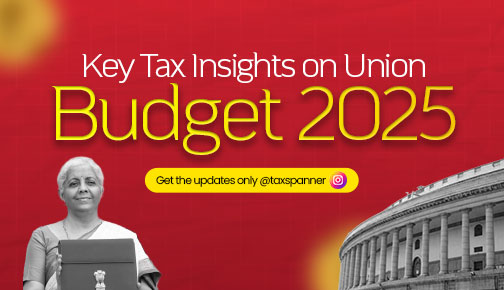Section 131(1A) of the Income Tax Act: Powers of the Assessing Officer
The Indian Income Tax Department has various provisions to make sure compliance and curb tax evasion. One such provision is Section 131(1A) of the Income Tax Act, which grants special powers to the Assessing Officer (AO) and other tax authorities to gather information and investigate suspected tax evasion. This section plays a crucial role in the enforcement of tax laws and is often invoked in cases where authorities believe that a taxpayer is concealing income or evidence.
What is Section 131(1A)?
Section 131(1A) enables the tax authorities to act when they have reason to suspect that a taxpayer is attempting to evade taxes. Under this section, an Assessing Officer, Joint Commissioner, or Principal Director of Income Tax (Investigation) can conduct an inquiry or investigating before initiating an official assessment or search proceedings.
Key Provisions of Section 131(1A)
Suspicion of Tax Evasion
The tax authorities must have a valid reason to believe that the taxpayer is concealing income or evidence related to tax liabilities.
Power to Enforce Attendance
The AO can summon individuals, including the taxpayer, to provide evidence or testify under oath.
Inspection and Examination
The officer can inspect books of accounts, records, and other relevant documents.
Power to Issue Summons
Authorities can issue summons compelling individuals to appear before them for an inquiry.
Confidential Investigations
These inquiries can be carried out without the taxpayer’s prior knowledge to prevent tampering with evidence.
Preliminary Step Before Search and Seizure
Section 131(1A) is often used as a preliminary step before acting under Section 132 (Search and Seizure).
When is Section 131(1A) Invoked?
The authorities may invoke Section 131(1A) in the following scenarios:
- When there are discrepancies in financial statements or income tax returns.
- If there are unexplained transactions or cash deposits that raise suspicion.
- Based on intelligence reports, whistleblower complaints, or data analytics findings.
- Before proceeding with a search operation under Section 132.
Implications of Section 131(1A)
Increased Cooperation Between Law Enforcement Agencies
Section 131(1A) promotes information sharing between different agencies. It helps the agencies work together and combat financial fraud and tax evasion.
Protecting Confidential Information
Section 131(1A) consists of strict provisions that makes sure that confidential information shared by Income Tax Authorities cannot be disclosed in an unauthorized manner. This helps keep a check on the misuse of taxpayers’ sensitive information.
Fast and Effective Investigation
The sharing of information provisions helps improve the speed and accuracy of the investigation as various agencies can work together. It also enables agencies to access relevant information and conduct successful investigations.
Checking Tax Evasion
Information sharing serves as a threat to tax evaders and therefore helps keep a check on tax evasion by increasing the risk of punishment and detection.
How to Respond to a Notice Under Section 131(1A)?
If you receive a notice under Section 131(1A), follow these steps to make sure compliance:
Do Not Ignore the Notice
Non-compliance can lead to penalties or further legal action.
Review the Details Carefully
Understand why the notice was issued and what information is being requested.
Gather and Submit Documents
Provide the required financial records, bank statements, and income proofs within the stipulated time.
Seek Professional Assistance
Consult a tax expert or chartered accountant to respond appropriately and avoid mistakes.
Respond Within the Deadline
Timely response prevents additional scrutiny or penalties.
Penalties for Non-Compliance
Failure to comply with a notice under Section 131(1A) can lead to:
- A fine for non-appearance or refusal to provide requested documents.
- Further scrutiny, including a potential search and seizure operation under Section 132.
- Possible prosecution in extreme cases of tax fraud.
In conclusion, Section 131(1A) of the Income Tax Act is a powerful tool that tax authorities use to investigate potential tax evasion. If you receive a notice under this section, it is essential to take it seriously, provide accurate information, and seek professional guidance if needed. Compliance with tax laws not only guarantees smooth financial dealings but also prevents legal consequences. For expert assistance in handling tax notices, consider consulting a tax professional like TaxSpanner to safeguard your interests.
Explore TaxSpanner's wide range of calculators for your tax planning and calculations!
View Tools & Calculators





